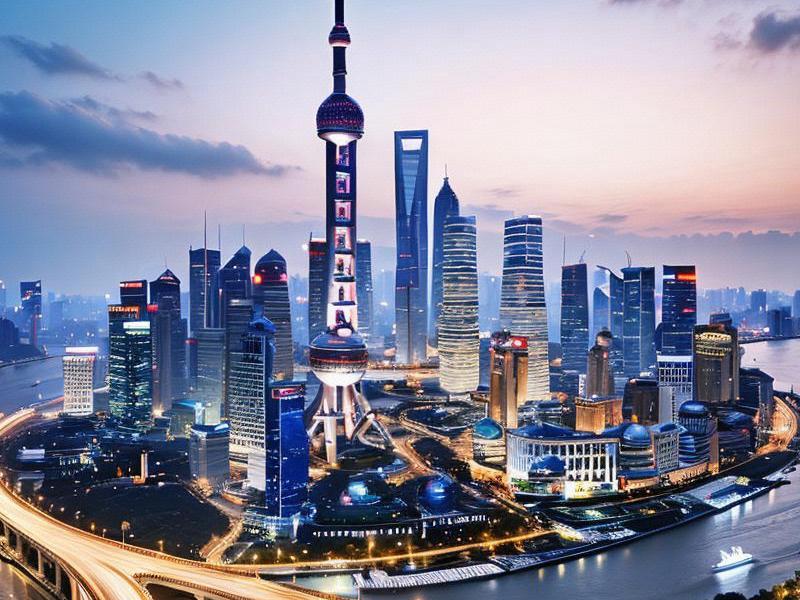
Shanghai, the largest city in China, is a vibrant metropolis that serves as a crucial hub for finance, trade, culture, and innovation. Situated at the mouth of the Yangtze River, Shanghai is not only a gateway to the vast Chinese market but also a bridge connecting China to the world. Over the past few decades, Shanghai has undergone remarkable transformations, emerging as a global leader in various fields.
The city's strategic location along the Yangtze River Delta, one of the most economically dynamic regions in China, has been instrumental in its rapid development. The Yangtze River Delta, which includes major cities such as Nanjing, Hangzhou, and Suzhou, is known for its high GDP, advanced infrastructure, and innovative industries. Shanghai, as the core city of this region, has leveraged its geographical advantage to attract investment, foster innovation, and drive economic growth.
One of the most significant aspects of Shanghai's transformation is its economic evolution. Once a colonial port city, Shanghai has successfully reinvented itself into a global financial center. The city is home to the Shanghai Stock Exchange, one of the largest stock exchanges in the world, and the Pudong area, which houses the iconic Oriental Pearl Tower and the Shanghai Tower, symbolizing the city's modernity and ambition.
The Pudong New Area, developed in the late 20th century, has become a symbol of Shanghai's economic prowess. It is home to the Lujiazui Financial District, where some of the world's tallest skyscrapers stand, including the Shanghai Tower, which is the tallest building in China and the second-tallest in the world. This area has attracted numerous multinational corporations, financial institutions, and technology companies, making it a global hub for business and innovation.
新夜上海论坛 Shanghai's economic success is not limited to finance; the city is also a leader in manufacturing, trade, and logistics. The Port of Shanghai, one of the busiest ports in the world, handles a significant portion of China's international trade. The city's advanced infrastructure, including its extensive metro system, efficient public transportation, and well-connected highways, facilitates seamless movement of goods and people.
Beyond its economic achievements, Shanghai is renowned for its rich cultural heritage and vibrant arts scene. The city is a melting pot of cultures, with influences from China's various regions as well as from abroad. This cultural diversity is reflected in the city's architecture, cuisine, festivals, and art.
The Bund, a historic waterfront area, showcases the contrast between Shanghai's colonial past and its modern skyline. The area is lined with beautiful neoclassical buildings that date back to the early 20th century, offering a glimpse into the city's history. Across the Huangpu River lies Pudong, with its futuristic skyscrapers and modern architecture, symbolizing Shanghai's rapid development.
Shanghai's culinary scene is as diverse as its culture. The city is famous for its street food, such as xiaolongbao (soup dumplings) and shengjianbao (pan-fried dumplings), which are beloved by locals and tourists alike. The city's restaurants offer a wide range of cuisines, from traditional Chinese dishes to international flavors, reflecting the city's cosmopolitan nature.
上海龙凤419 The arts scene in Shanghai is thriving, with numerous museums, galleries, theaters, and music venues. The Shanghai Museum, one of the largest and most prestigious museums in China, houses an impressive collection of Chinese art, including ancient ceramics, calligraphy, and paintings. The city's contemporary art scene is also vibrant, with galleries like the Power Station of Art showcasing innovative works by Chinese and international artists.
Shanghai's cultural events and festivals add to its charm. The Shanghai International Film Festival, one of the oldest and most prestigious film festivals in Asia, attracts filmmakers and audiences from around the world. The city's vibrant nightlife, with its bars, clubs, and live music venues, offers a dynamic entertainment scene.
In addition to its economic and cultural achievements, Shanghai is also a leader in urban development and sustainability. The city has implemented various initiatives to address environmental challenges and promote sustainable growth. For example, Shanghai has been investing in green infrastructure, such as parks, green spaces, and renewable energy projects, to improve the quality of life for its residents.
上海喝茶服务vx The city's urban planning efforts have focused on creating a livable and sustainable environment. The development of eco-friendly neighborhoods, such as the Zhangjiang Hi-Tech Park, demonstrates Shanghai's commitment to innovation and sustainability. The park is home to numerous high-tech companies and research institutions, fostering a thriving innovation ecosystem.
Shanghai's role in the Yangtze River Delta region is crucial, as it serves as the economic engine driving the region's growth. The city's advanced infrastructure, skilled workforce, and business-friendly environment make it an attractive destination for investment and talent. The integration of Shanghai with other cities in the Yangtze River Delta, such as Nanjing, Hangzhou, and Suzhou, has created a highly interconnected regional economy.
The Yangtze River Delta region is known for its high GDP, advanced technology, and innovative industries. The region's cities are hubs for finance, manufacturing, trade, and technology, contributing significantly to China's economic development. Shanghai's leadership in this region has been instrumental in driving regional integration and fostering economic cooperation.
In conclusion, Shanghai is a dynamic hub of innovation and culture in the Yangtze River Delta region. Its remarkable economic transformation, rich cultural heritage, and commitment to sustainability make it a global leader in various fields. As the core city of the Yangtze River Delta, Shanghai continues to drive regional integration and foster economic growth, solidifying its position as a global metropolis.
The city's future looks promising, with ongoing initiatives to enhance its infrastructure, promote innovation, and address environmental challenges. Shanghai's ability to adapt and evolve in a rapidly changing world ensures its continued success as a global leader. The city's story is a testament to the power of innovation, culture, and urban development, inspiring cities around the world to pursue similar paths of growth and transformation.
